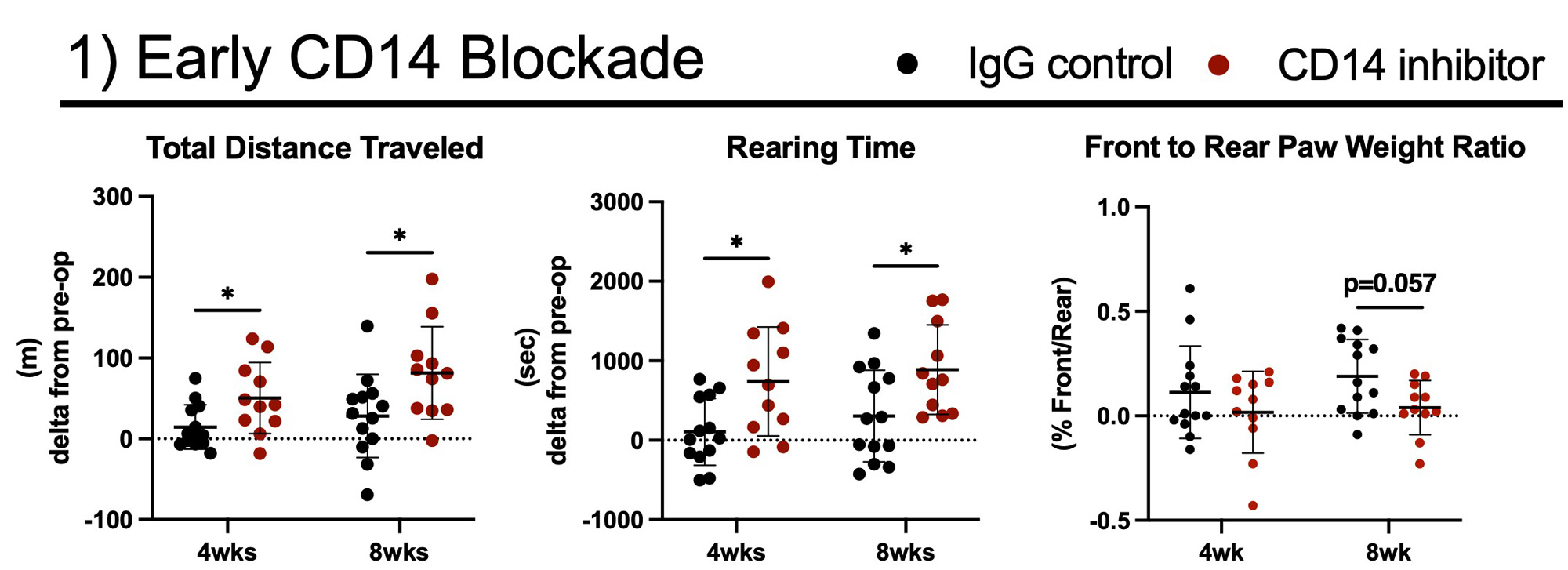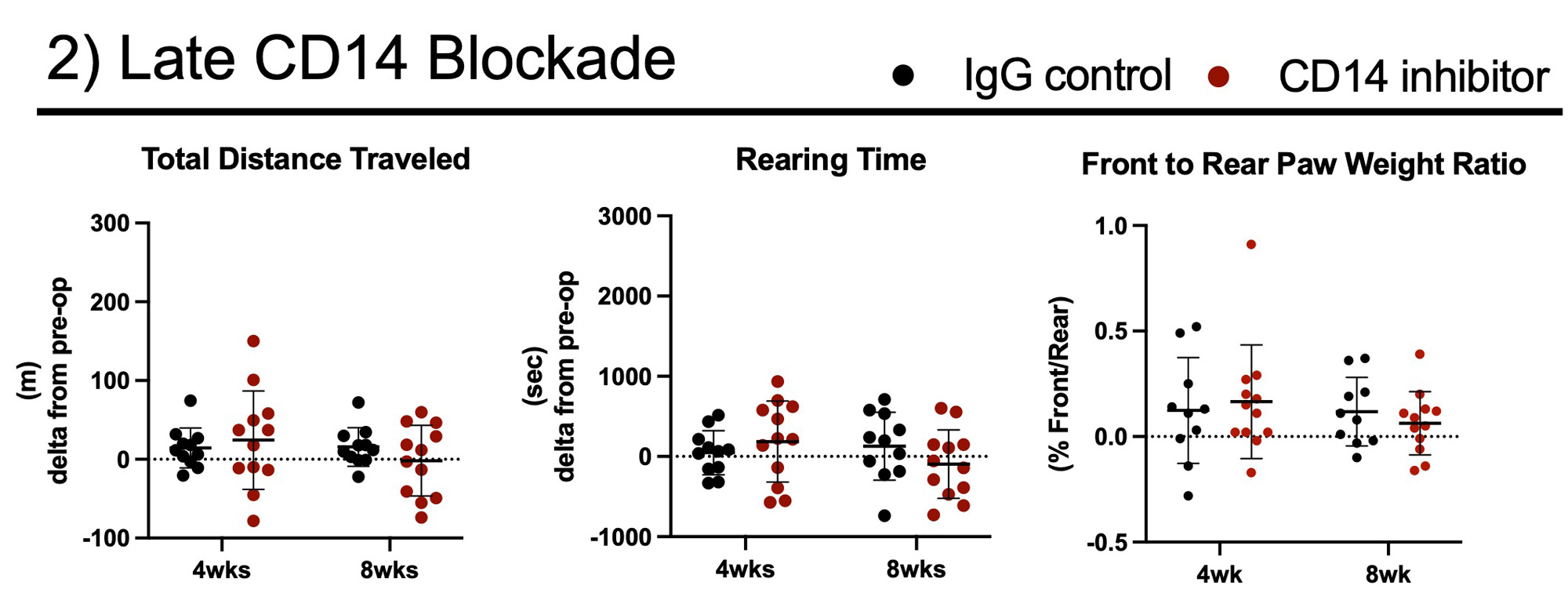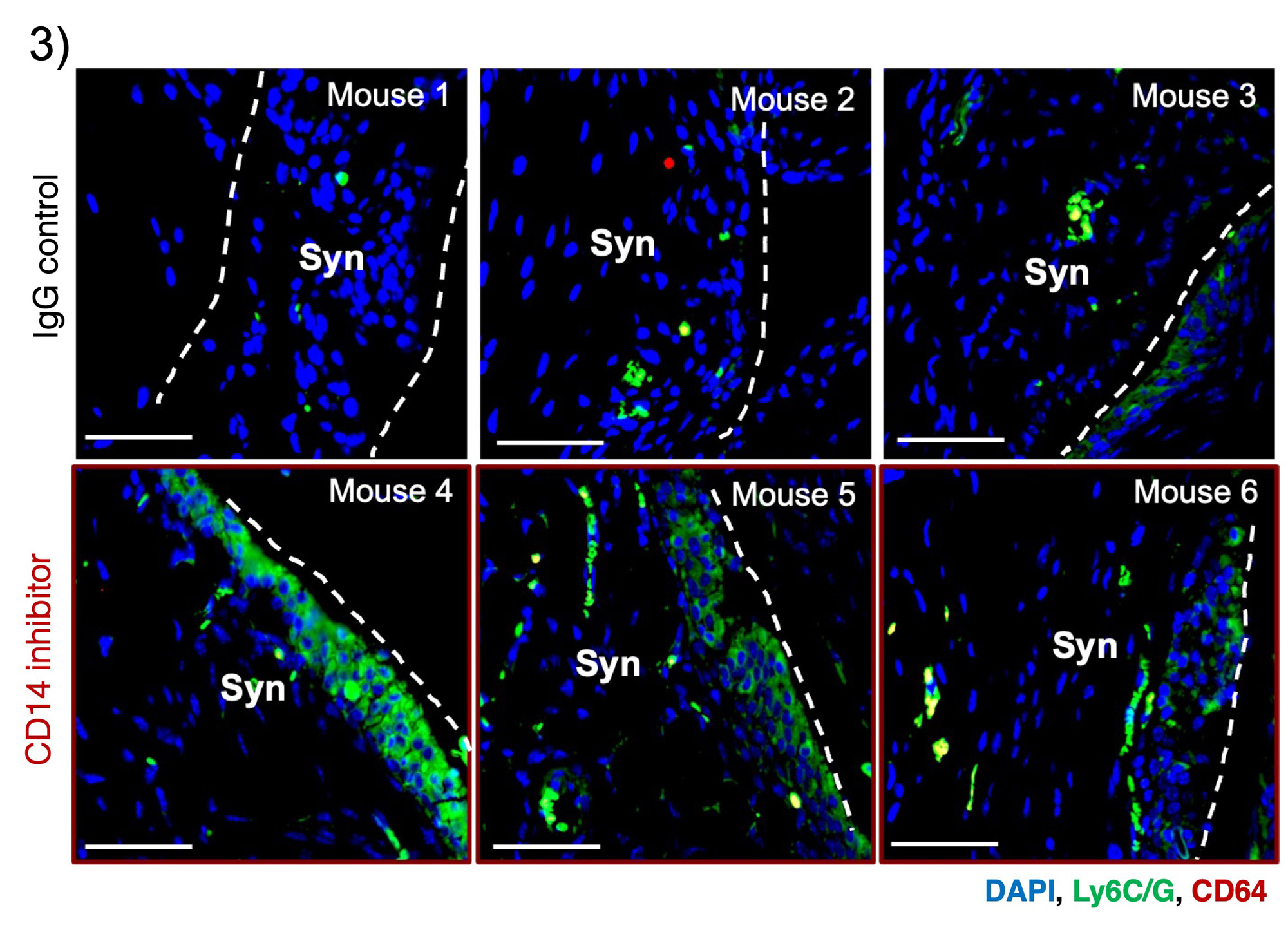Session Information
Date: Monday, November 13, 2023
Title: (0859–0885) Osteoarthritis & Joint Biology – Basic Science Poster
Session Type: Poster Session B
Session Time: 9:00AM-11:00AM
Background/Purpose: Osteoarthritis (OA) is the most common joint disorder, and growing evidence has identified inflammation to be a major driver of disease progression. During disease, the synovium is identified as a reservoir of inflammatory mediators and immune cells, primarily consisting of monocyte/macrophages.1 CD14, a co-receptor of inflammatory toll-like receptor signaling and a macrophage-activation-related protein, has been identified within synovial fluid and positively associated with joint space narrowing and knee pain.2 We previously reported that global genetic CD14 deficiency in mice protects against OA-associated bone-remodeling and pain-related joint dysfunction.3 Thus, we hypothesize an anti-CD14 therapeutic will mediate inflammatory activation in the synovium during OA, and mitigate disease progression and pain.
Methods: OA model (n=12-14): We performed destabilization of the medial meniscus (DMM) surgery to induce OA in skeletally mature (10-12 wk old) C57BL/6 mice.3
Intervention: Mice were treated intra-articularly with either an anti-CD14 monoclonal antibody (mAb, clone biG53) or an IgG2a control (both 0.5mg/kg), two dosing strategies were tested: 1) Prevention strategy:mice received anti-CD14 or IgG control weekly x 3 doses, starting 48 hrs post DMM. 2) Treatment strategy: mice received 3 weekly injections beginning 4 wks post DMM. Behavioral analysis: Evaluation of spontaneous cage behaviors was performed via the laboratory animal behavior observation registration and analysis system (LABORAS, Metris).3 Paw weight bearing analysis was performed via the advanced dynamic weight bearing (ADWB, Bioseb) system.4 Immunohistochemistry (n=3): In a separate early dosing 4-wk study, whole knee joints were fixed, decalcified, paraffin embedded, and sectioned. Sagittal sections underwent antigen retrieval and overnight incubation with primary antibodies (monocyte: Ly6C/D, macrophage: CD64), followed by incubation with fluorescent secondary antibodies, and lastly cover-slipped with mounting medium containing DAPI nuclear dye and imaged.
1Sanchez 2012 2Lieberthal 2015 3Sambamurthy 2018 4Krug 2019
Results: Prevention strategy: Early CD14 blockade increased total distance traveled and rearing time at 4- and 8-wks post DMM, compared to control mice (p< 0.05) (Fig. 1). Front to rear paw weight ratio 8-wks post DMM had a strong decreasing trend (p=0.057) in CD14 inhibitor treated mice compared to controls (Fig. 1). Treatment strategy: When treatment was delayed (4 wks post-DMM), no significant behavior or weight bearing changes were observed between groups (Fig. 2). Evaluating inflammation, early CD14 blocked increased the presence of Ly6C/G+ cells within the synovial lining layer compared to control at 4-wks post DMM (Fig. 3). Few CD64+ cells were observed (Fig. 3).
Conclusion: Results revealed early delivery of a CD14 blocking mAb after DMM injury was more effective at improving mobility, compared to delayed dosing. Immunostaining suggests that anti-CD14 treatment may be modulating myeloid cell activation, clearance, or differentiation within the synovium during OA progression. Results provide significant support for further evaluation of CD14 as a therapeutic for painful OA.
To cite this abstract in AMA style:
Burt K, Nguyen V, Murphy L, Herbert D, Mauck R, Scanzello C. CD14 Inhibition as a Potential Therapeutic in Post Traumatic OA [abstract]. Arthritis Rheumatol. 2023; 75 (suppl 9). https://acrabstracts.org/abstract/cd14-inhibition-as-a-potential-therapeutic-in-post-traumatic-oa/. Accessed .« Back to ACR Convergence 2023
ACR Meeting Abstracts - https://acrabstracts.org/abstract/cd14-inhibition-as-a-potential-therapeutic-in-post-traumatic-oa/



